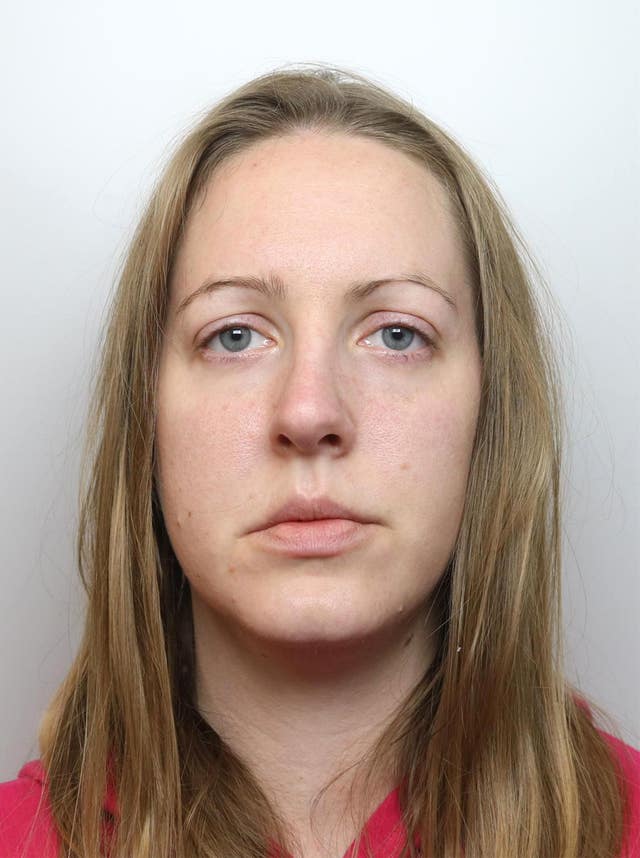
NHS whistleblowers are “treated like the problem”, leading medics have said, after it emerged that doctors who raised concerns about killer nurse Lucy Letby were forced to apologise to her.
The Hospital Consultants and Specialists Association (HCSA) called for reform of the disciplinary system to ensure that staff who speak out about problems are protected from “retribution”.
It said that patients should not face harm “because managers are more interested in supressing trouble and protecting reputations”.
The comments come after it emerged that numerous staff raised concerns about the actions of Letby, 33, as she conducted a year-long killing spree at the Countess of Chester Hospital.
On Friday she became Britain’s most prolific child killer, after she was convicted of the murder of seven babies and the attempted murder of six more during her shifts on the hospital’s neonatal unit between 2015 and 2016.
Warnings from top doctors on the neonatal unit were not acted on and the decision to call in the police was delayed by months.
A number of doctors on the unit were even forced to write Letby a letter of apology after sounding the alarm over her behaviour.
It has been reported that two medics were ordered to attend mediation sessions with Letby.
Meanwhile a new hospital leader claimed to have been told to “refer the paediatricians to the General Medical Council” – the doctors’ regulator.

In comments exclusively to the PA news agency, HCSA president Dr Naru Narayanan said: “It’s an appalling reminder of a culture which persists today in some parts of our NHS despite the many, many warnings we’ve had over the years.
“All too often whistleblowers are treated by bad employers like the problem and find themselves on the receiving end of threats and bullying to remain silent.
“Speaking up can end careers. If you are not white it’s an even bigger risk. It’s an act of bravery when it should just be the cultural norm.
“People find themselves at the centre of witch-hunts and placed on disciplinaries. This fuels a culture of silence which can have terrible consequences for patients.
“We’ve had report after report identifying the lack of an open culture where concerns can be raised without repercussions. It’s likely any investigation into the Letby case will find the same.”
He added: “NHS leaders know, after the Francis inquiry into deaths at Mid-Staffs, what needs to be done. It’s absolutely shameful that so many years on we are talking about the same things and more lives have been lost.
“Whistleblowing policies, freedom-to-speak-up guardians, all of these things are just lip service in a lot of places. The system needs to be a reality not just a tick-box exercise.
“What we need now is a review by every Trust to make sure that the systems which should be in place are really in place.
“We need to focus on safe staffing levels. We need to reform the disciplinary system to protect those who speak up from retribution later down the line.
“No-one else should face harm because managers are more interested in suppressing trouble and protecting the Trust’s reputation than they are in delivering the safe, open culture that they are meant to have signed up to.”
Hospital bosses have been ordered to adhere to their whistleblowing policies by NHS top brass following Letby’s conviction.
NHS England wrote to hospital leaders across the country to remind them of “the importance of NHS leaders listening to the concerns of patients, families and staff, and following whistleblowing procedures, alongside good governance, particularly at trust level”.
The letter added: “We want everyone working in the health service to feel safe to speak up and confident that it will be followed by a prompt response.”
It comes as Dr Ravi Jayaram, one of the doctors who raised concerns over Letby’s behaviour, said that whistleblowers are “not only being ignored but then being portrayed as the problem”.
He added: “There needs to be fundamental change in the culture and governance of NHS institutions and it should start right now.”
Sheila Sobrany, president of the Royal College of Nursing, also called into question whether Dr Jayaram “would have been listened to if he was white”.
She wrote on Twitter: “If we are going to learn anything from this case we need to stop denying that racism is a serious issue in the NHS, this doctor would have been listened to if he was white and Lucy Letby would have been stopped sooner if she wasn’t white.
“This was a serious safeguarding issue that compromised the lives and well-being of babies and subsequently their parents.
“Dr Ravi Jayram was not listened to or taken seriously.”
Meanwhile paediatrician Dr Stephen Brearey, who blew the whistle on Letby in 2015, told the Guardian the hospital had been “negligent” in its handling of the killings.


Comments: Our rules
We want our comments to be a lively and valuable part of our community - a place where readers can debate and engage with the most important local issues. The ability to comment on our stories is a privilege, not a right, however, and that privilege may be withdrawn if it is abused or misused.
Please report any comments that break our rules.
Read the rules hereComments are closed on this article